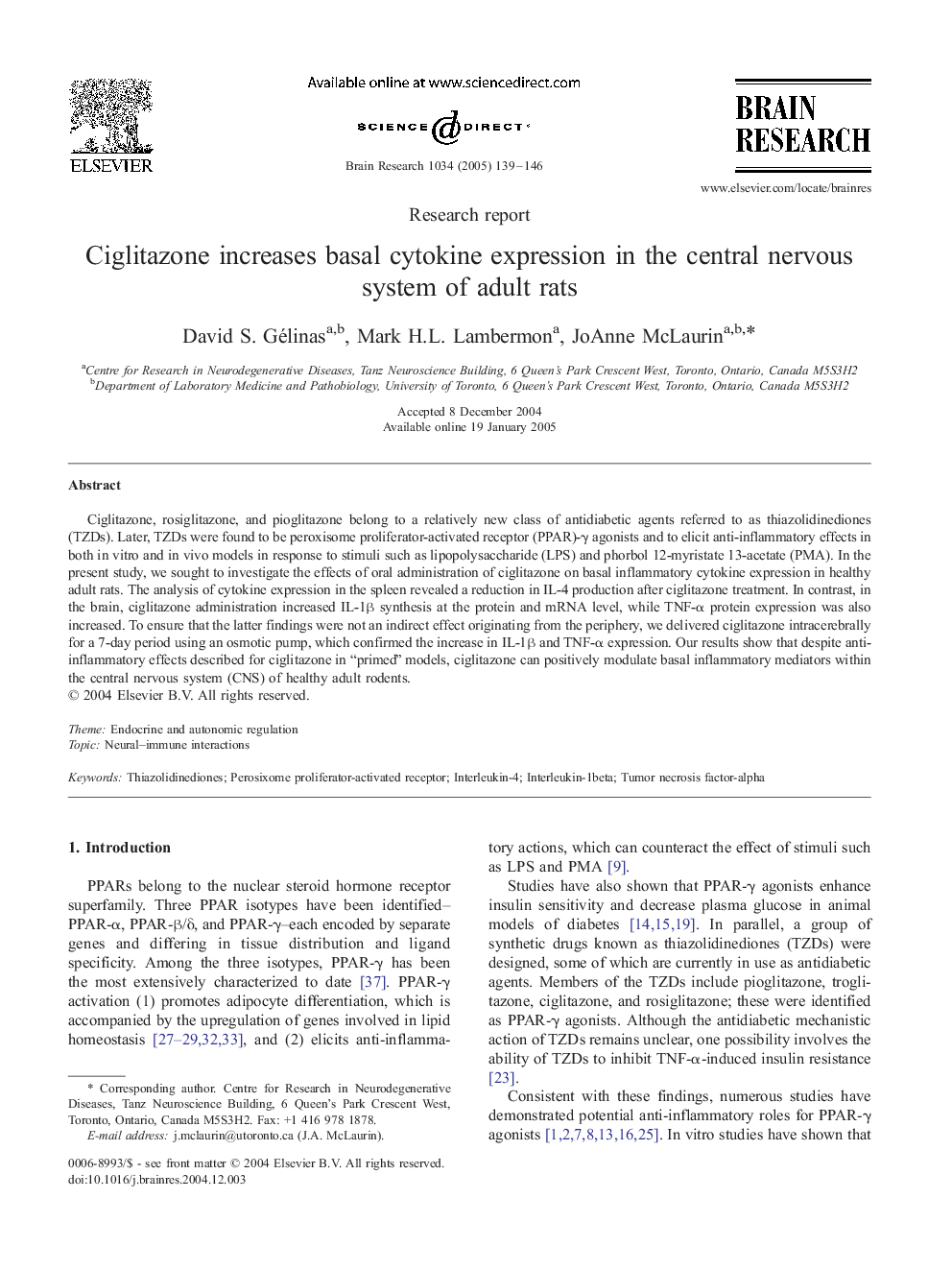| Article ID | Journal | Published Year | Pages | File Type |
|---|---|---|---|---|
| 9416835 | Brain Research | 2005 | 8 Pages |
Abstract
Ciglitazone, rosiglitazone, and pioglitazone belong to a relatively new class of antidiabetic agents referred to as thiazolidinediones (TZDs). Later, TZDs were found to be peroxisome proliferator-activated receptor (PPAR)-γ agonists and to elicit anti-inflammatory effects in both in vitro and in vivo models in response to stimuli such as lipopolysaccharide (LPS) and phorbol 12-myristate 13-acetate (PMA). In the present study, we sought to investigate the effects of oral administration of ciglitazone on basal inflammatory cytokine expression in healthy adult rats. The analysis of cytokine expression in the spleen revealed a reduction in IL-4 production after ciglitazone treatment. In contrast, in the brain, ciglitazone administration increased IL-1β synthesis at the protein and mRNA level, while TNF-α protein expression was also increased. To ensure that the latter findings were not an indirect effect originating from the periphery, we delivered ciglitazone intracerebrally for a 7-day period using an osmotic pump, which confirmed the increase in IL-1β and TNF-α expression. Our results show that despite anti-inflammatory effects described for ciglitazone in “primed” models, ciglitazone can positively modulate basal inflammatory mediators within the central nervous system (CNS) of healthy adult rodents.
Keywords
Related Topics
Life Sciences
Neuroscience
Neuroscience (General)
Authors
David S. Gélinas, Mark H.L. Lambermon, JoAnne McLaurin,
